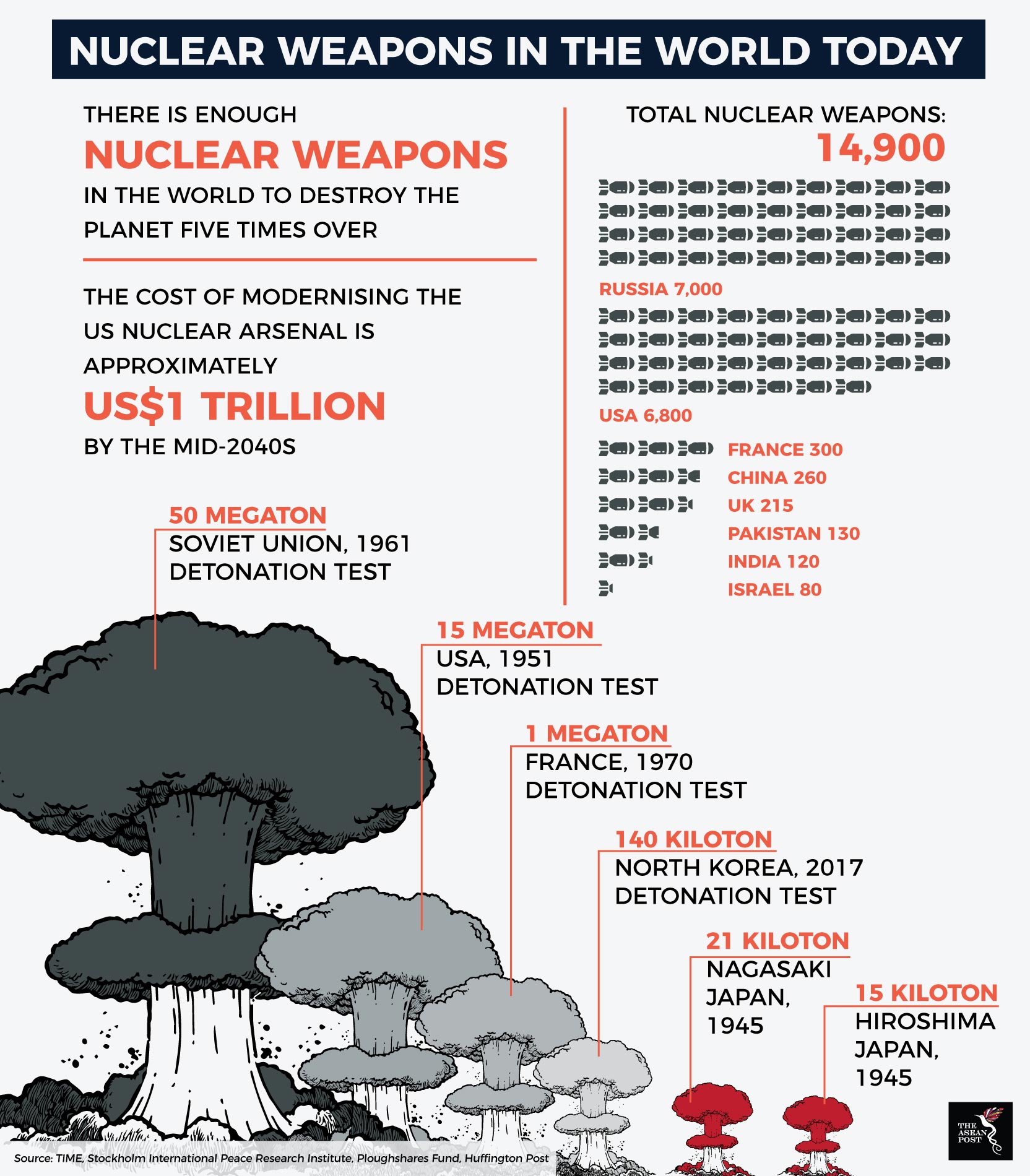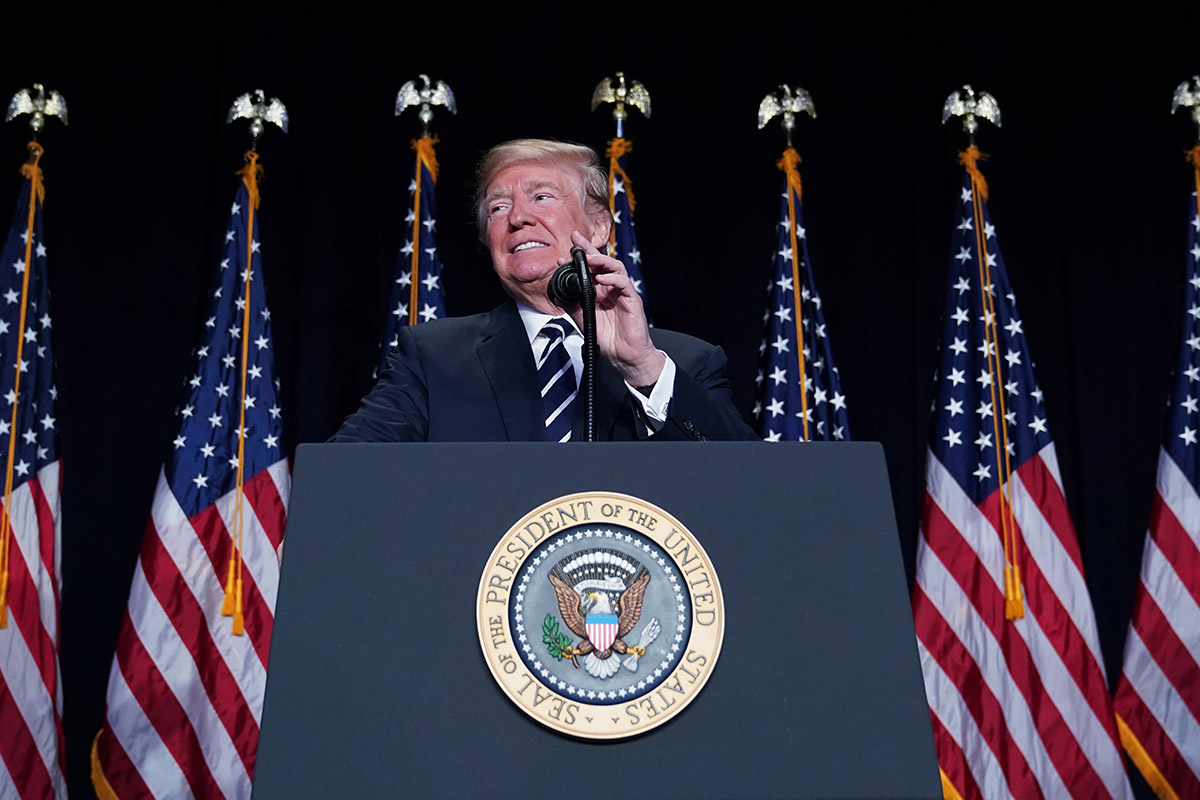The United States (US) recently released a new nuclear policy which has come under heavy criticism from many quarters. The doctrine by the Trump administration is essentially a nuclear posture review that critics have called “aggressive” – reminiscent of the Cold War era of politics.
It contains the superpower’s attitude towards nuclear armed nations like China, Russia and North Korea. The 74-page report called Pyongyang a “…clear and grave threat” to the US and its allies and warned that any nuclear attack on the US or any one of its allies would lead to the “…end of the regime.”
It also highlighted Russia and China’s efforts of modernising their respective military arsenals and criticised Russia for adopting military strategies that “…rely on nuclear escalation for their success.” The report also blamed Moscow for heralding a return to an era of great power competition. Beijing’s military capabilities on the other hand was cast as a challenge to “…traditional U.S. military superiority in the Western Pacific.”
The policy caused an uproar in the international community. Predictably Russia, China and North Korea heavily criticised the US for its aggressive foreign policy posturing.
Moscow denounced the report as “bellicose” and “anti-Russian”, warning that it would take necessary measures to protect its own security. Chinese state media, Xinhua News also heavily condemned the report as “hawkish” and that it pushes the US “…towards a path of nuclear expansion.” North Korea also joined the foray of critics. Agence France Presse (AFP) reported that North Korea’s state news agency slammed the report as saying the US had "…made a declaration of war against the whole world."

Impact on the ASEAN region
As the Southeast Asian region sits within a hotbed of geopolitical activity – the wider East Asian neighbourhood – member states of the Association of Southeast Asian Nations (ASEAN) would undoubtedly be affected by Trump’s new doctrine.
The determining factor is US leadership in the region. For long, the US, under the “hub and spokes” model of diplomacy has remained a prominent presence in the Asia Pacific region. However, the recent rise of China has seemingly threatened the US’ position. To remedy this, the US under the Obama administration undertook a pivot to Asia which was widely seen as a move to contain Beijing.
However, under the Trump administration, though the President is not about to let go of US superiority in the region, has made relatively weaker foreign policy moves to assert US presence in the Asia Pacific. Besides that, his increasingly protectionist outlook on the international order has undermined US credibility as the “leader of the free world.” Now, with this new nuclear policy, the superpower risks alienating itself further.
This could force ASEAN member states to rethink their own foreign policy posturing – which is a nicer way of saying that states might rebalance by pivoting towards China. More and more, Beijing is looking like the bastion of the free world amid Trump’s unpredictable nature of conducting international politics. It has a long-term plan to assert its dominance in trade – via the Belt and Road Initiative – and is the militarily superior force in the region.
On the flip side, there are those who contend that the recent posturing by the Trump administration is a signal that America will not turn its back on the Asia Pacific especially so since Trump referred to Russia and China as “great power rivals” in the doctrine.
Trump "…seems to have returned a focus to the Asia-Pacific region and is making clear that he's not about to pull out on Asia-Pacific allies," Malcolm Davis, a senior analyst at the Australian Strategic Policy Institute told AFP.
“He might talk in terms of America first... but he is making the case that America is not about to turn its back,” he added.
Either way, great power rivalry may force ASEAN states to pick a side as the pressures of ASEAN centrality amid a highly charged political environment gets the better of them. So far, as long as ASEAN doesn’t have to select its preferred orbit of influence, the association will survive, but will that change in the future is anyone’s guess.
Recommended stories:
